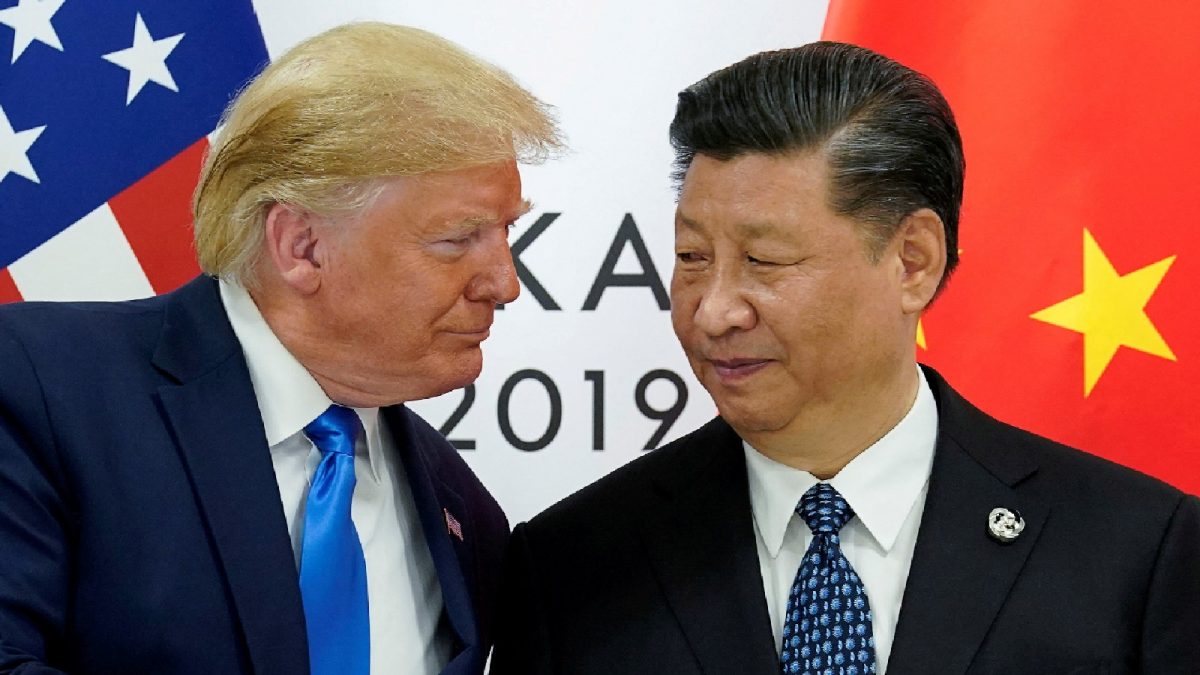Last Updated:April 03, 2025, 13:53 IST
Trump announced 10% tariffs on all imports into the United States, and even higher tariffs on goods from about 60 countries or trading blocs that have a high trade deficit with the US

White House trade adviser Peter Navarro has suggested the new tariffs would raise USD 600 billion annually, which would be the largest tax increase since World War II. (Photo: AFP)
A day after US President Donald Trump’s “Liberation Day", high-ranking officials of affected nations are busy doing calculations. But what caught people’s eyes was numbers mentioned on a plaque that Trump held in his hands while announcing reciprocal tariffs.
While making the announcement, Trump said: “For nations that treat us badly, we will calculate the combined rate of all their tariffs, non-monetary barriers and other forms of cheating."
The numbers, he said, are “approximately half of what they are and have been charging us."
Using national emergency powers, Trump announced 10% tariffs on all imports into the United States, and even higher tariffs on goods from about 60 countries or trading blocs that have a high trade deficit with the US. That includes China and the European Union, which will be levied new duties of 34% and 20%, respectively.
Internet Cracks The Math Behind Trump’s Tariffs
Many netizens noted that the new rates seemed to have been calculated by first examining the trade deficit the US has with a country, and then dividing that by the value of goods that country exports to the US.
Julian Klymochko, CEO and CIO of Investment firm Accelerate FT, referred to Trump’s move as “biggest economic blunder of all time". In a post on X, he said the “tariffs charged to the USA" are not tariffs at all but they are the US trade deficit divided by US imports from that country. He said to set a level of “reciprocal" tariffs based on completely incoherent non-tariff calculations is “incomprehensible".
Note that the “Tariffs charged to the U.S.A." are not tariffs at allThey are the U.S. trade deficit divided by U.S. imports from that country
For example:
Trade deficit with China ($295.4 billion) / US imports from China ($438.9 billion) = 67%
Europe: $235.6 / $605.8 = 39% pic.twitter.com/13JSrtzk68
— Julian Klymochko (@JulianKlymochko) April 2, 2025
Ryan Petersen, Founder and CEO of Flexport, also backed trade deficit theory and posted a chart showing the predictions of this formula plotted against the actual new tariff rates.
Flexport’s team was able to reverse engineer the formula the Administration used to generate the “reciprocal tariffs."It’s quite simple, they took the trade deficit the US has with each country and divided it by our imports from that country.
The chart below shows the… pic.twitter.com/01bUpfKgk8
— Ryan Petersen (@typesfast) April 3, 2025
This guy cracked the tariff formula:@orthonormalistIt’s simply the nation’s trade deficit with us divided by the nation’s exports to us.
Yes. Really.
Vietnam: Exports 136.6, Imports 13.1Deficit = 123.5
123.5/136.6 = 90% pic.twitter.com/fDOMoQwzKt
— Geiger Capital (@Geiger_Capital) April 2, 2025
Another netizen, Brian Krassenstein said this is the stupidest thing he has ever seen.
URGENT: Trump’s tariff figures have absolutely nothing to do with reciprocal tariffs.His numbers are almost all just the approximate % difference in trade balance.
For example:
– U.S. Exports $27.6B to Malaysia and Imports $52.5B from Malaysia = $24.9B imbalance.… pic.twitter.com/dQHfUpX9fj
— Brian Krassenstein (@krassenstein) April 3, 2025
How Much New Tariffs Would Help US
White House trade adviser Peter Navarro has suggested the new tariffs would raise USD 600 billion annually, which would be the largest tax increase since World War II. Treasury Secretary Scott Bessent told lawmakers the tariffs would be capped and could be negotiated downward by other countries, according to the office of Rep. Kevin Hern, R-Okla.
Location :Washington D.C., United States of America (USA)
First Published:April 03, 2025, 13:53 IST
News business Donald Trump’s Tariff Formula: Internet Thinks It Has Cracked The Code, Points To US Trade Deficits

 1 month ago
1 month ago

















